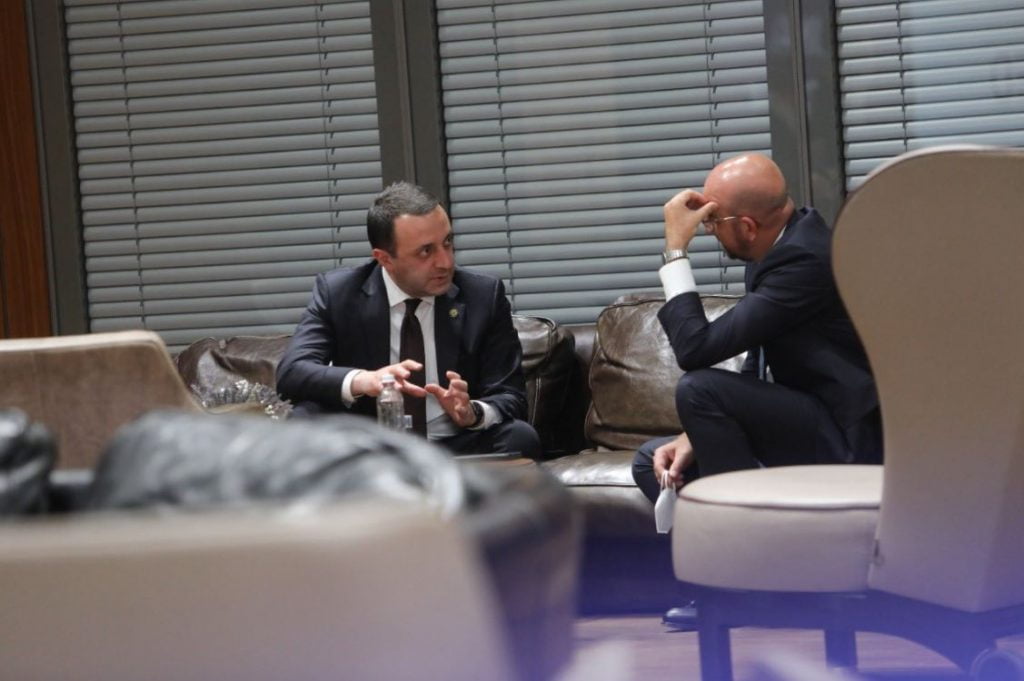European Council President Charles Michel and Georgian Prime Minister Irakli Garibashvili met on August 23 in Kyiv, where both leaders attended the inaugural summit of Crimea Platform.
President Michel tweeted after the meeting that he “underlined to Prime Minister Irakli Garibashvili that reforms are as needed as ever.”
The top EU official said the deadline for disbursement of macro-financial assistance “is looming,” adding that “it is time for the Georgian government to demonstrate its commitment to the agreements and notably the reform agenda.”
PM Garibashvili said in his tweet that he reassured the President of the European Council that “Georgia remains committed to the reform agenda outlined in the April 19 Agreement.”
“A significant part of these reforms has already been implemented and we are determined to continue working on the remaining important reforms as well,” he added.
The EU has been warning that proper implementation of judicial reforms as foreseen in the April 19 agreement, mediated by President Michel to end the political crisis in Georgia, was “a condition for the disbursement of the second tranche of macro-financial assistance to Georgia.”
Specific warnings started coming after the ruling Georgian Dream party attracted criticism over “hastily designed and adopted” changes to the selection process of the Supreme Court Justices back in April. President Michel again recalled the conditionality of EU aid with respect to judicial reforms in July after meeting Georgian leaders in Batumi, Adjara region.
Earlier in April, the leading Members of the European Parliament were first to consider cutting the EU assistance as opposition and the ruling party kept failing to agree on the EU-proposed compromise document.
Georgian Dream and part of the boycotting opposition signed the EU-brokered deal on April 19, envisaging, among others, key election and judicial reforms. With some electoral changes made as per the deal, the ruling party, however, decided to withdraw from the deal on July 28, pointing at the reluctance of the United National Movement, the major opposition party, to sign the agreement.
Despite the withdrawal, the party said it would further adopt constitutional amendments, judiciary reforms, and amnesty law as foreseen by the deal. GD, however, took back the pledge taken under the agreement to hold early elections if it received less than 43% in local polls in October, leaving the fulfillment of the earlier promise on its “goodwill.”
Also Read:
- President Michel to Start Consultations after GD’s EU-Brokered Deal Withdrawal
- PM Garibashvili Addresses Crimea Platform Summit
This post is also available in: ქართული (Georgian) Русский (Russian)

